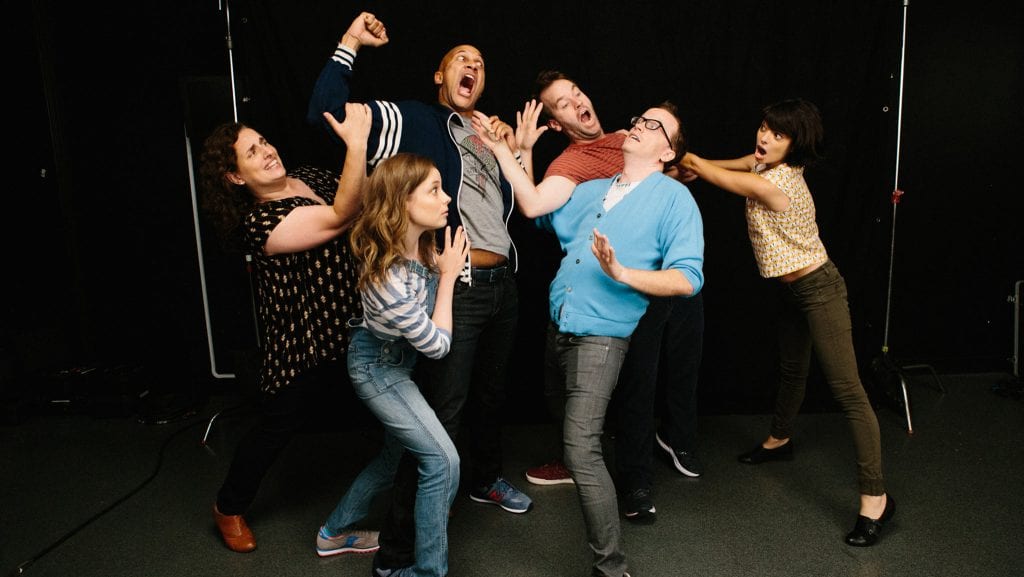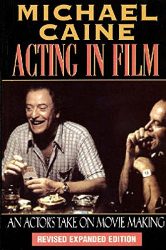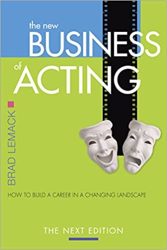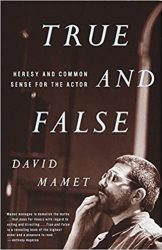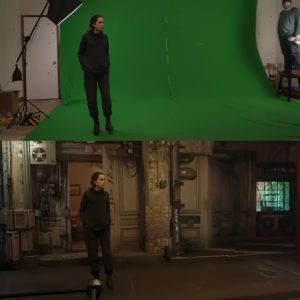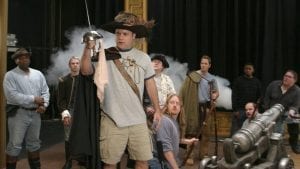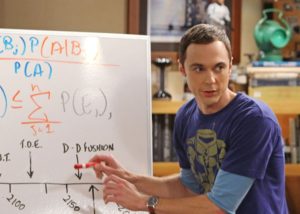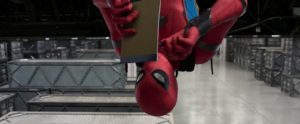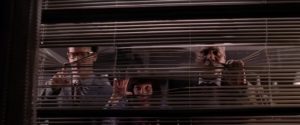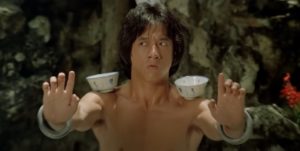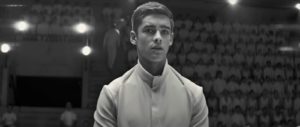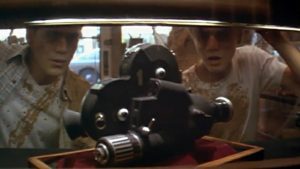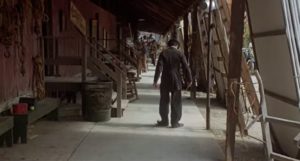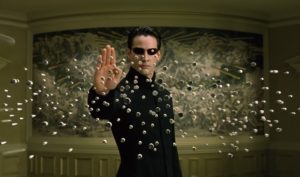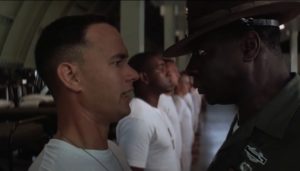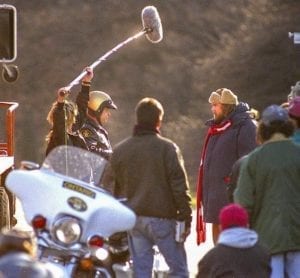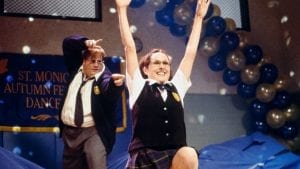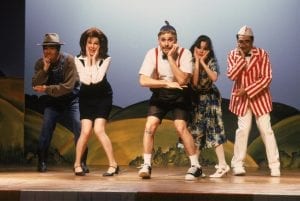If you’re thinking of becoming an actor, you may have heard people recommend improv and you might be wondering, “Can improv make you a better actor?”
Yes, improv can make you a better actor, and it’s also attractive to casting directors, because improv helps you be flexible and adaptable when you act. You can adapt your performance to be compatible with scene partners, and you know what to do when a director says, “Give me something different”.
This article gives more details and ends with some advice.
Listening
In the world of acting you will hear so much about the importance of listening. (You can read more about that in the article about what makes a good actor.) But what does that have to do with improv?
At its core, improv is not about being funny, but about being present in the moment and reacting to what your scene partner is giving you.
Looking at their eyes, listening to their words, reading their body language and responding intuitively. It’s about being adaptable. Honestly, this last sentence could be a definition of acting as well.
When we implement these active listening skills, we become more present in the scene which in turn can allow us to give a better performance.
Adaptability
In addition to adapting to your scene partners (i.e. listening), adaptability also helps a lot in the audition room.
Casting directors always say they love it when actors come prepared to make strong choices. That means having a strong choice about your character, their situation and your delivery of their lines. In an audition, your first attempt at the material is the strong choice you prepared.
But what if you make the wrong choice? What if your choice is not what the casting director wanted to see? This is once again where improv comes in!
I can’t tell you the number of times I’ve made a strong choice in an audition, given an equally strong performance and then be asked to try something different.
Coming into an audition with a strong choice is enough to compel the casting director to encourage you to get creative. (For more information about strong choices in the audition room, take a look at the article about preparing for a one-line audition.)
A lot of times, it’s not about whether or not you did it perfectly the first time, it’s about your ability to adapt to the direction you’re given. Hence, improv!
Your ability to take feedback, digest it and quickly give them what they want, is an improv muscle skill. I’ve impressed many casting directors, not necessarily with my first performance, but with the ability to give them a variety of performances based on their feedback and direction.
Occasionally on set, depending on your director, scene or castmates, you may be required to improvise your way through a scene. The director might say something like, “Give me something different.” It’s a vague request, one that can be nerve-wracking for some actors. There’s no direction, no insight, they just want you to show it to them another way. This is where improv training comes into play.
New Opportunities
Another really great aspect of improv is having it on your resume. Having improv experience can open the door to other opportunities like comedy and commercial auditions. There is a lot about comedic acting that relies on riffing back and forth to create authentic, funny moments. This is a core pillar of improv. Many times in commercials, especially those without dialogue, they’re counting on your spontaneity to create a strong performance with very little direction.
That’s why, if you have improv training, or attend drop-in classes, your agent will be much more likely to submit you for commercials and comedies. Having this on your resume will make the casting directors more open to seeing you for those auditions as well.
Improv definitely helps both in your acting abilities and your success in the business of acting.
Advice
If you want to become an actor, spend a good six months to a year focusing solely on your acting. Once you feel like you’re improving at scene work and script analysis, start to complement your acting training with improv.
I think if you’re serious about being an actor, you should dedicate a minimum of two years to building the foundation of your acting skills. (For more information about this, take a look at the article about how long it takes to become a professional actor.)
Imagine trying to find an agent with not only two years of acting training but also a year of improv or even a certificate of completion from an improv program! Imagine not only having practical training and student films under your belt but also live performance experience from improv. Wouldn’t that make you even more attractive to potential agents? Wouldn’t that help you to become more comfortable and more capable as an actor?
For many of us, acting is a dream that we wish to pursue. That dream becomes closer to reality when you begin adding additional skills like improv to your toolkit.
So, if you’re hesitant about whether or not improv is something you should explore or invest in, the answer is yes. It will advance your creativity. I’m a firm believer that creativity is a muscle. The more you use it, the bigger the muscle gets and the easier it becomes. Improv is an excellent tool to help actors exercise their creative muscle.
